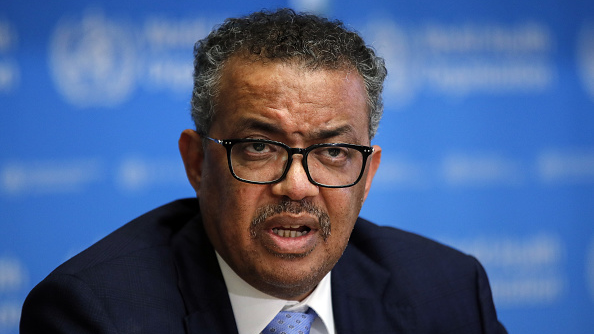
File photo of Dr Tedros Adhanom Ghebreyesus, director-general of the World Health Organization. (Photo: Agencies)
The director-general of the World Health Organization (WHO), Dr Tedros Adhanom Ghebreyesus, repeated his warning against the dangers of "vaccine nationalism," saying the COVID-19 vaccine situation could result in greater inequality.
Ghebreyesus, who spoke during the Agenda Davos closing panel on vaccine equity, said the pandemic had exposed and exploited the inequalities of the world.
He cited an example in 2009 where vaccines were developed to tackle the H1N1 pandemic, but the pandemic ended before the world had gained full access to them.
"There is now the real danger that the very tools that could help to end the pandemic, like vaccines, may exacerbate those same inequalities," Ghebreyesus said.
He added that the current situation, where wealthy countries were already rolling out their vaccination campaigns while poorer nations, in many cases, are yet to receive any consignments of the vaccines, will only stretch the duration of the pandemic.
"This not only leaves the world's most vulnerable people at risk; it is also short-sighted and self-defeating. Vaccine nationalism will only prolong the pandemic, the restrictions needed to contain it and human and economic suffering."
He cited a recent study by the International Chamber of Commerce Research Foundation which found vaccine nationalism could cost the global economy up to $9.2 trillion, half of which could be borne by the wealthiest nations.
"If COVID-19 continues to circulate and vaccine nationalism causes us to lose trust in international collaboration, business operations & supply chains will remain disrupted & we will all pay the price in terms of a protracted economic recovery," he said in a tweet.
Given concerns that countries with smaller wallets may be left at the back of the queue, the WHO launched an international scheme, COVAX, to help ensure equitable access to jabs. However, it has struggled to raise the funds needed.


